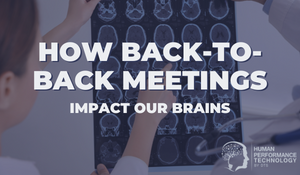Part 3: How Frameworks Accelerate Diagnosis, Understanding and Mastery
-3 Minute Read
Welcome to the concluding part of our series on the transformative power of frameworks. In this final piece, we explore the significant advantages frameworks provide in accelerating the process of learning, understanding complex concepts, and mastering new skills. Through the lens of cognitive science, real-world examples, and practical tips, we'll delve into how frameworks can be your ally in personal and professional development, significantly reducing the time and effort required to grasp new ideas.
Cognitive Science and the Power of Frameworks
Cognitive science tells us that our brains are wired to recognise patterns and organise information into structures. This innate propensity is why frameworks are so effective—they align with our natural inclination towards categorisation and structure, enhancing our ability to absorb and retain information. By presenting new knowledge within an organised framework, we can quickly connect new concepts to existing knowledge, making learning more efficient and enduring.
Examples of Frameworks in Action:
- The Lean Startup Methodology - The Lean Startup methodology, developed by Eric Ries, is a powerful framework that has revolutionised how new businesses are built and launched. By emphasising the importance of building a minimum viable product (MVP), measuring how customers respond, and learning whether to pivot or persevere, this framework accelerates the development process and reduces the risk associated with launching new products. It's an approach that has enabled countless entrepreneurs to efficiently validate their business models and rapidly adapt based on feedback, significantly enhancing their chances of success in competitive markets.
- Porter’s Five Forces - Developed by Michael E. Porter, this framework offers a comprehensive method for analysing the competitive forces that shape every industry and how they affect an organisation's strategic positioning. The Five Forces—threat of new entrants, threat of substitutes, bargaining power of buyers, bargaining power of suppliers, and intensity of competitive rivalry—provide a structured approach to assessing the competitive landscape. Businesses use this framework to identify strategic opportunities, understand the dynamics of their industry, and craft strategies that leverage their strengths and mitigate their vulnerabilities, thereby achieving competitive advantage and superior market performance.
Leveraging Existing Frameworks for Enhanced Learning and Mastery
In our journey to accelerate understanding and mastery, the strategic use of existing frameworks emerges as a critical step. Rather than reinventing the wheel, we can harness the power of frameworks that have already proven effective across various domains. Here’s a fresh approach to leveraging these invaluable resources:
Identifying the Right Frameworks:
- Explore with Purpose - Start with a clear understanding of your learning objective or the problem you're aiming to solve. This clarity will guide your search for the most relevant frameworks.
- Dive into Communities and Resources - Engage with professional communities, online forums, and educational resources specific to your field of interest. These platforms often discuss tried-and-tested frameworks, providing insights into their practical application.
- Assess Compatibility - Look for frameworks that not only address your specific challenge but also resonate with your thinking style and learning preference. Compatibility is key to effective application.
Tailoring Frameworks to Your Needs:
- Analyse and Deconstruct - Break down the selected framework to understand its core principles and how they apply to your context. This step is crucial for effective customisation.
- Integrate Personal Insights - Infuse the framework with your own insights, experiences, and the specific nuances of your situation. Personalisation makes the framework more relatable and effective.
- Iterate and Evolve - Apply the tailored framework in a real-world context, observe its impact, and be ready to iterate based on feedback and results. Continuous refinement ensures the framework remains relevant and effective.
Harnessing Frameworks for Accelerated Learning:
- The strategic selection and adaptation of frameworks can transform them into powerful lenses through which complex subjects become understandable and navigable.
- This process not only demystifies new areas of knowledge but also significantly shortens the learning curve, allowing for quicker mastery and application.
Reflective Considerations:
- Reflect on the frameworks you've encountered in your professional or educational experiences. How might these be adapted to address current challenges or learning goals?
- Consider the value of community knowledge and shared experiences in discovering frameworks. How can you tap into these collective resources to find the right framework for your needs?
By thoughtfully leveraging and tailoring existing frameworks, we position ourselves to rapidly assimilate new information, navigate complexity with greater ease, and achieve mastery in our chosen domains. This approach not only saves time but also builds upon the collective wisdom and experiences of those who have navigated similar paths before us, offering a shortcut to deeper understanding and proficiency.

Trevor O'Sullivan
General Manager. Since the early 2000s, Trevor has worked with thousands of Talent Management professionals to develop and apply assessment-based talent management solutions for selecting, developing and managing people. Trevor is an active member of the TTI Success Insights (TTISI) Global Advisory Council, contributes to TTISI product development and is a regular presenter at TTISI-R3. He is honoured to have received multiple Blue Diamond Awards and, more recently, the Bill Brooks Impact Award recognising his contributions to the TTISI global network.


.png?width=374&name=P%26C%20-%20Neuro-Linguistic%20Programming%20(NLP).png)
We Would Like to Hear From You (0 Comments)